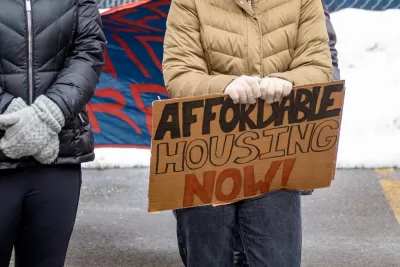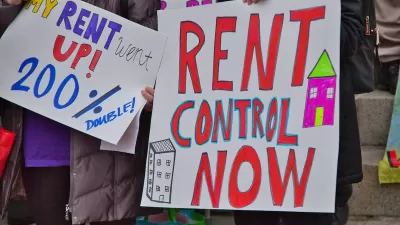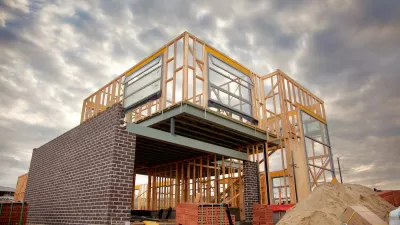An Urban Institute analysis outlines three ways federal lawmakers can support housing programs that provide permanent affordable housing for the households that need it most.

In a piece for the Urban Institute, Samantha Atherton and Samantha Fu highlight the importance of housing costs to most voters — and the lack of effective messaging around housing policy coming from political candidates seeking office this November.
According to the authors, “Permanently affordable housing, or housing that is insulated from the private, speculative market, is one solution to the housing crisis that both Democrats and Republicans favor.” Even a majority (60 percent) of Republicans reported they would support a candidate who has a plan for permanently affordable housing.
Expanding the nation’s stock of permanently affordable housing is one way to decommodify housing, or decouple access to housing from the ability to pay for it.
The authors outline three strategies that the federal government could undertake to create a supply of permanently affordable housing and alleviate the housing crisis growing across the nation.
The three policy proposals include creating a federal Green Social Housing Development Authority responsible for building and maintaining affordable housing units. “The authority would serve as a vehicle for the federal government to acquire distressed real estate, public land, investor-owned vacant properties, expiring low-income housing tax credit properties, and properties with track records of landlord exploitation and repair and retrofit them.” The properties could then be transferred to nonprofits, housing authorities, resident cooperatives, or local governments for long-term management.
Other suggestions include providing federal funding for state and local housing entities and building capacity for democratic community control of housing to further decommodify housing and empower residents to have decision-making power in their community. “The federal government could help build residents’ and communities’ capacities to engage in these models by providing technical assistance and funding initiatives to drive community engagement and organizing.”

Alabama: Trump Terminates Settlements for Black Communities Harmed By Raw Sewage
Trump deemed the landmark civil rights agreement “illegal DEI and environmental justice policy.”

Study: Maui’s Plan to Convert Vacation Rentals to Long-Term Housing Could Cause Nearly $1 Billion Economic Loss
The plan would reduce visitor accommodation by 25% resulting in 1,900 jobs lost.

Planetizen Federal Action Tracker
A weekly monitor of how Trump’s orders and actions are impacting planners and planning in America.

Wind Energy on the Rise Despite Federal Policy Reversal
The Trump administration is revoking federal support for renewable energy, but demand for new projects continues unabated.

Passengers Flock to Caltrain After Electrification
The new electric trains are running faster and more reliably, leading to strong ridership growth on the Bay Area rail system.

Texas Churches Rally Behind ‘Yes in God’s Back Yard’ Legislation
Religious leaders want the state to reduce zoning regulations to streamline leasing church-owned land to housing developers.
Urban Design for Planners 1: Software Tools
This six-course series explores essential urban design concepts using open source software and equips planners with the tools they need to participate fully in the urban design process.
Planning for Universal Design
Learn the tools for implementing Universal Design in planning regulations.
Caltrans
Smith Gee Studio
Institute for Housing and Urban Development Studies (IHS)
City of Grandview
Harvard GSD Executive Education
Toledo-Lucas County Plan Commissions
Salt Lake City
NYU Wagner Graduate School of Public Service





























